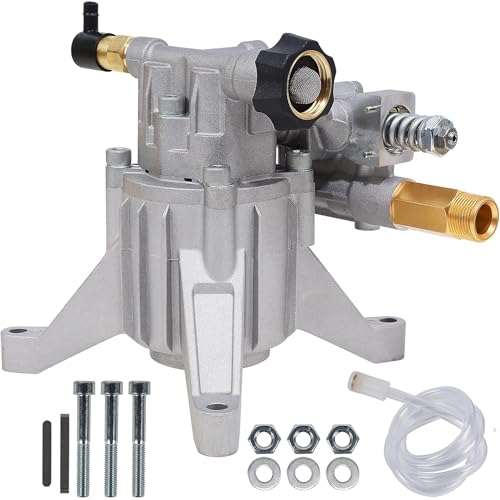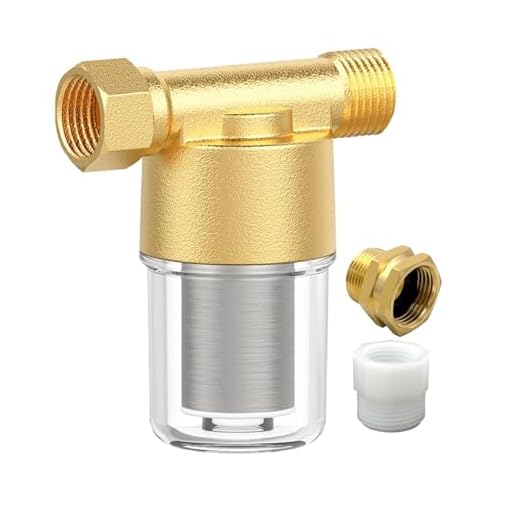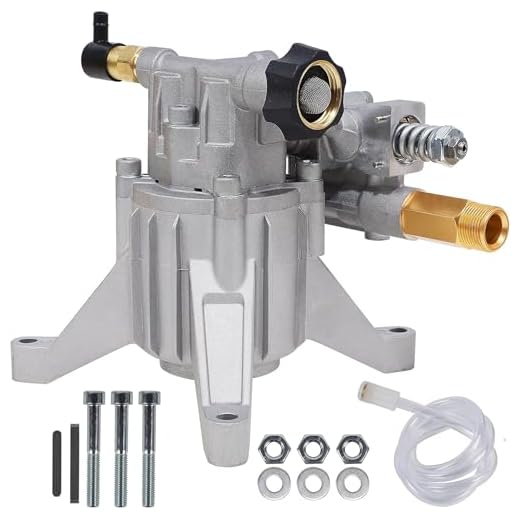Blog
Why Is My Pressure Washer Not Spraying Hard

Pressure washers are incredibly useful tools for cleaning a variety of surfaces, from driveways and sidewalks to decks and patios. However, if your pressure washer is not spraying as hard as it used to, it can be frustrating and make your cleaning tasks much more difficult. There are several potential reasons why your pressure washer may not be spraying hard, and it’s important to identify and address the issue in order to get your pressure washer back to peak performance.
One possible reason for a lack of pressure from your pressure washer is a clogged nozzle. Over time, dirt, debris, and other particles can accumulate in the nozzle, causing a blockage that restricts the flow of water. To fix this issue, you can try cleaning the nozzle with a needle or small wire to remove any obstructions. If the nozzle is severely clogged, it may need to be replaced.
Another common cause of low pressure is a faulty or worn-out pump. The pump is responsible for creating the pressure in a pressure washer, and if it is not working properly, the water flow and pressure will be affected. Check the pump for any leaks or damage, and make sure that all the connections are secure. If the pump is damaged, it may need to be repaired or replaced.
Additionally, a dirty or clogged filter can also result in reduced pressure. The filter is designed to catch and remove any debris or particles from the water before it reaches the pump and nozzle. Over time, the filter can become clogged with dirt and debris, which can restrict water flow and decrease pressure. Make sure to clean or replace the filter regularly to ensure optimal performance.
In some cases, the pressure washer hose or wand may also be the culprit. Check for any kinks or blockages in the hose, and make sure that the wand is securely attached. A damaged or leaking hose or wand can significantly reduce the pressure and spray power of your pressure washer.
By identifying the cause of your pressure washer’s lack of pressure and taking appropriate action, you can restore it to its full potential and ensure that your cleaning tasks are completed with ease and efficiency.
Common Reasons for Low Pressure in Pressure Washers
If you are experiencing low pressure with your pressure washer, there could be a few common reasons for this issue. Understanding these reasons can help you troubleshoot and resolve the problem.
1. Clogged Nozzle: One of the most common reasons for low pressure in a pressure washer is a clogged nozzle. Over time, dirt, debris, and mineral deposits can accumulate in the nozzle, blocking the water flow and reducing the pressure. Cleaning or replacing the nozzle can help restore the pressure.
2. Inadequate Water Supply: Another common cause for low pressure is an inadequate water supply. If the water source doesn’t provide enough flow or pressure, the pressure washer won’t be able to generate high-pressure spray. Ensure that the water supply is sufficient for the pressure washer’s requirements.
3. Faulty Pump: A faulty pump can also lead to low pressure. If the pump is not functioning properly, it may not be able to build up the necessary pressure for effective cleaning. Check the pump for any issues such as leaks or worn-out components and repair or replace it if necessary.
4. Worn or Damaged Hoses: Hoses play a critical role in maintaining the pressure in a pressure washer. If the hoses are worn, damaged, or improperly connected, they can cause a drop in pressure. Inspect the hoses for any signs of wear or damage, and ensure they are securely attached to the pressure washer and spray gun.
5. Unbalanced Chemical Detergent: Some pressure washers have detergent tanks for using cleaning solutions. If the detergent is not properly mixed or the concentration is too high, it can affect the pressure output. Make sure to follow the manufacturer’s instructions for diluting and using the detergent.
6. Air Leaks: Air leaks in the pressure washer system can result in reduced pressure. Check all the connections and fittings for any signs of leaks, and seal them properly. Air leaks can cause the pressure washer to lose pressure and compromise its performance.
By addressing these common issues, you can troubleshoot and resolve the problem of low pressure in your pressure washer. Regular maintenance and proper care can help keep your pressure washer running at optimal pressure levels and ensure effective cleaning performance.
Clogged Nozzle or Spray Tip
One common reason why your pressure washer may not be spraying hard is due to a clogged nozzle or spray tip. Over time, dirt, debris, and mineral deposits can build up inside the nozzle, restricting the flow of water.
To check if the nozzle is clogged, you can remove it from the spray gun and inspect it for any visible blockages. If you see any, you can try cleaning it by using a small wire or a paperclip to gently clear the obstructions.
If cleaning the nozzle doesn’t solve the issue, you may need to replace it. Nozzles and spray tips come in different sizes and angles, so make sure to get the correct one that is compatible with your pressure washer model.
Preventing Clogs
To prevent clogs in the future, it’s important to always use clean water when operating your pressure washer. If you are using a water source that contains a lot of sediment or minerals, it’s recommended to use a filter or strainer to remove any debris before it reaches the pressure washer.
In addition, it’s a good idea to regularly inspect and clean the nozzle or spray tip to ensure optimal performance. This can be done by removing the nozzle and rinsing it with water, or using a nozzle cleaning solution specifically designed for pressure washers.
Proper Maintenance
Regular maintenance of your pressure washer can also help prevent clogs and ensure that it continues to spray at maximum power. This includes cleaning or replacing the inlet filter, inspecting and tightening any loose fittings, and checking the condition of the hose and spray gun.
It’s also essential to follow the manufacturer’s guidelines for maintenance and usage, as improper handling or storage can lead to issues with the pressure washer’s performance.
| Common Causes of Clogs | Prevention Tips |
|---|---|
| Accumulation of dirt and debris | Regularly clean the nozzle or spray tip |
| Mineral deposits | Use clean water and consider using a water filter |
| Using water from a contaminated source | Use clean water and avoid using water from questionable sources |
Insufficient Water Supply
If your pressure washer is not spraying hard, one possible reason could be an insufficient water supply. Pressure washers require a steady flow of water to operate effectively. If the water supply is not sufficient, it can result in a weak spray.
To ensure that you have an adequate water supply, check the following:
1. Water Source
Make sure that the water source is turned on and the water is flowing freely. If you are using an external water tank, check if it is full and the water level is sufficient.
2. Water Pressure
Check the water pressure coming into your pressure washer. A minimum of 20 PSI (pounds per square inch) is generally required for the pressure washer to function properly. If the water pressure is too low, you may need to adjust it or use a different water source with higher pressure.
Note: Some pressure washers have a built-in pressure regulator. If yours has one, make sure it is properly adjusted to allow for optimal water pressure.
If you have checked these factors and the water supply still seems insufficient, consider contacting a professional for further inspection and assistance. They will be able to identify any underlying issues that may be affecting the water flow and offer solutions to resolve them.
Remember to always follow the manufacturer’s guidelines and safety instructions when operating your pressure washer.
Worn or Damaged Pump
If your pressure washer is not spraying hard, a possible reason could be a worn or damaged pump. The pump is the heart of your pressure washer, and over time, it can wear out or get damaged due to regular use or improper maintenance. Some signs of a worn or damaged pump include low water pressure, leaking water, or strange noises coming from the pump.
- Inspect the pump for any visible signs of wear or damage, such as cracks or leaks.
- Check the pump’s seals and o-rings for any signs of wear or deterioration. These are common areas where leaks can occur.
- Ensure that the pump is properly lubricated. Lack of lubrication can cause excessive friction and damage to the pump’s components.
- Check the pump’s intake and discharge valves for any obstructions or damage. Blocked or damaged valves can restrict the flow of water and affect the pressure output.
- If you suspect that the pump is worn or damaged, it is recommended to consult a professional or contact the manufacturer for further assistance. They can provide guidance on repairing or replacing the pump if necessary.
Remember, a worn or damaged pump can significantly affect the performance of your pressure washer. Regular maintenance and proper use can help extend the lifespan of the pump and ensure optimal spraying pressure.
Incorrectly Adjusted Pressure Regulator
If your pressure washer is not spraying water with enough force, there could be a problem with the pressure regulator. The pressure regulator is responsible for controlling the amount of pressure that is released from your pressure washer. If it is incorrectly adjusted, it may be limiting the amount of pressure that is being sprayed.
To check if your pressure regulator is incorrectly adjusted, you will need to consult the owner’s manual for your specific pressure washer model. The manual will provide detailed instructions on how to properly adjust the pressure regulator.
Before adjusting the pressure regulator, make sure that your pressure washer is turned off and the spray gun trigger is released. Locate the pressure regulator knob, which is usually located near the pump on the pressure washer. Depending on your specific model, you may need to use a screwdriver or a wrench to adjust the knob.
Start by turning the knob counterclockwise to decrease the pressure, or clockwise to increase the pressure. Make small adjustments and test the pressure washer after each adjustment to see if the spraying force has improved. Continue adjusting until you find the optimal pressure for your cleaning needs.
It is important to note that different cleaning tasks may require different pressure settings. For example, cleaning a delicate surface may require lower pressure, while removing tough stains may require higher pressure. Adjust the pressure regulator accordingly to achieve the desired level of spraying force.
If, after adjusting the pressure regulator, your pressure washer is still not spraying hard enough, there may be another underlying issue. It is recommended to consult a professional or contact the manufacturer for further assistance.
Questions and answers
Why is my pressure washer not spraying hard?
There could be several reasons why your pressure washer is not spraying hard. One possibility is that the nozzle is clogged or worn out. You can try cleaning the nozzle or replacing it with a new one to see if that solves the problem. Another possible issue is low water pressure. Make sure that the water supply to the pressure washer is not restricted, and check if there are any kinks in the hose. It’s also worth checking the inlet screen for debris or dirt that may be blocking the flow of water. If none of these solutions work, there could be an issue with the pump or the engine, and you may need to take it to a professional for repair.
How can I clean the nozzle of my pressure washer?
To clean the nozzle of your pressure washer, you can try using a small pin or needle to remove any debris or dirt that may be clogging it. Gently insert the pin into the nozzle and wiggle it around to dislodge any blockage. You can also try soaking the nozzle in vinegar or a descaling solution to dissolve any mineral deposits that may be causing the blockage. After cleaning the nozzle, rinse it thoroughly with water before reattaching it to the pressure washer. If the nozzle is severely clogged or damaged, it may be necessary to replace it with a new one.
What should I do if the water pressure from my pressure washer is low?
If the water pressure from your pressure washer is low, there are several steps you can take to troubleshoot the issue. Firstly, check that the water supply is fully turned on and that there are no kinks or restrictions in the hose. If the hose is damaged or leaking, it may need to be repaired or replaced. Additionally, check the inlet screen on the pressure washer for any debris or dirt that may be blocking the flow of water and clean it if necessary. If the problem persists, there may be an issue with the pump or the engine, which may require professional repair.
Can using the wrong size nozzle affect the pressure of my pressure washer?
Yes, using the wrong size nozzle can affect the pressure of your pressure washer. The nozzle size determines the spray pattern and the pressure produced by the machine. Using a nozzle that is too large can result in lower pressure, while using a nozzle that is too small can cause excessive pressure that may damage surfaces or equipment. It’s important to use the correct size nozzle for the specific cleaning task you are performing. Refer to the manufacturer’s instructions or consult a professional to determine the appropriate nozzle size for your pressure washer.
What are some preventive measures to avoid low pressure in my pressure washer?
To prevent low pressure in your pressure washer, there are several measures you can take. Regularly clean and inspect the nozzle for any debris or blockages that may affect the spray pattern and pressure. Check the inlet screen for any dirt or debris and clean it if necessary. Ensure that the water supply to the pressure washer is not restricted and that the hose is free from kinks or damage. It’s also important to use the correct size nozzle for the task at hand, as using the wrong size can result in lower pressure. Regular maintenance and servicing of the pressure washer can also help prevent issues with low pressure.
Why is the pressure on my washer low?
If the pressure on your washer is low, there could be a few reasons for it. First, check the water supply and make sure it is turned on fully. If the water supply is not supplying enough water to the pressure washer, it will result in low pressure. Additionally, check the nozzle on the pressure washer to ensure it is not clogged or worn out. Clean or replace the nozzle if necessary. Finally, check the high-pressure hose for any blockages or kinks that could be restricting the water flow.
Why is my pressure washer not spraying water at all?
If your pressure washer is not spraying water at all, there are a few things you can check. First, make sure the water supply is turned on and there is enough water flowing into the pressure washer. If the water supply is fine, check the nozzle on the pressure washer to ensure it is not clogged. Clean out any debris or dirt from the nozzle. If the nozzle is clear and the pressure washer still does not spray water, there could be an issue with the pump. Check the pump for any blockages or damage and consult the manufacturer’s instructions for troubleshooting steps.
Recent Posts
-
How To Connect Soap To Honda Pressure Washer
June 28, 2024 -
A To Z Pressure Washing Scam
June 27, 2024 -
How To Pressure Wash Your Home With A Garden Hose
June 27, 2024 -
Where Can I Buy Honda Pressure Washer Parts
June 25, 2024













